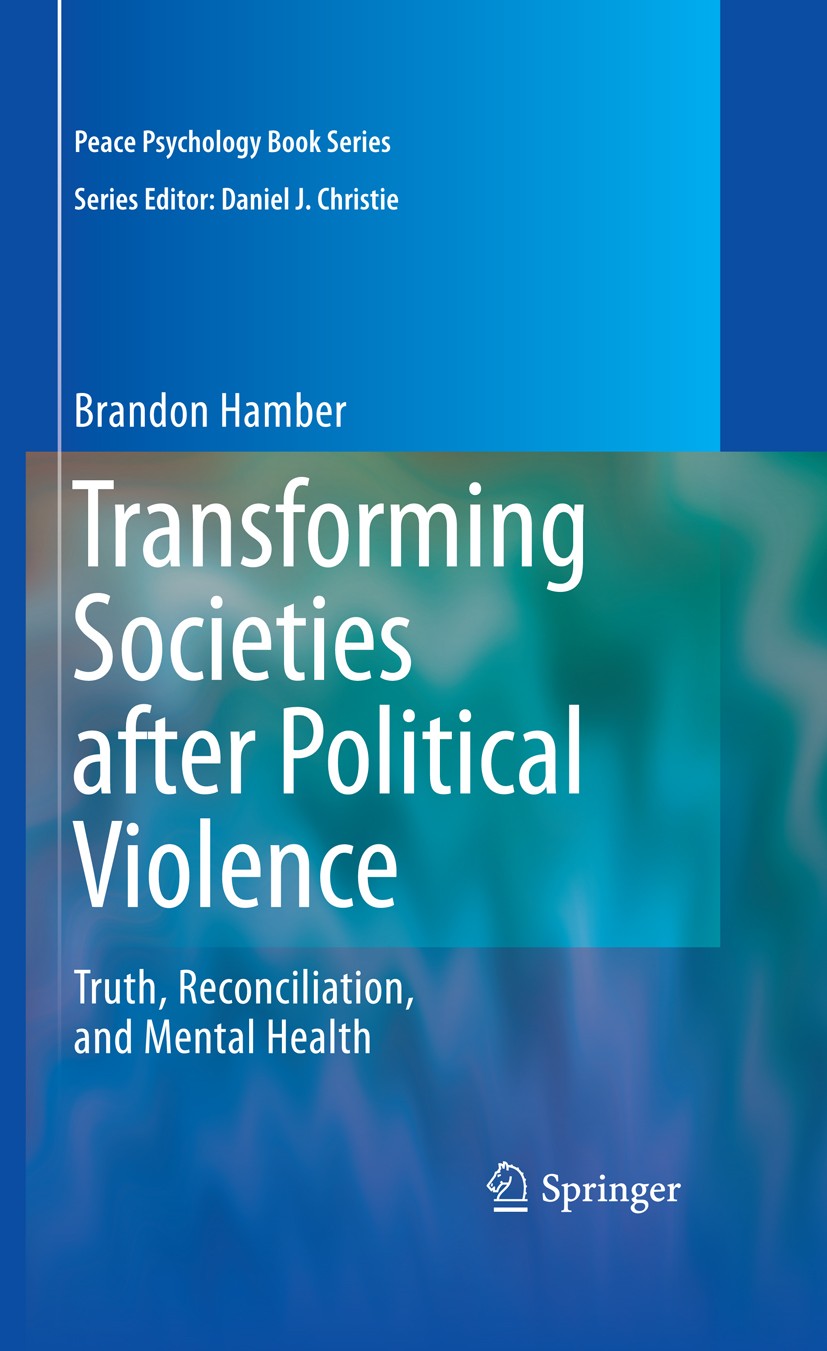| 书目名称 | Transforming Societies after Political Violence | | 副标题 | Truth, Reconciliatio | | 编辑 | Brandon Hamber | | 视频video | http://file.papertrans.cn/929/928528/928528.mp4 | | 概述 | Examines the relationship and interplay between transitional justice, peace psychology, and trauma.Looks at how political processes and individual trauma have intersected to become a subject of increa | | 丛书名称 | Peace Psychology Book Series | | 图书封面 |  | | 描述 | Paraphrasing Descartes, we may say that one method is to take the reader into your conf idence by explaining to him how you arrived at your discovery; the other is to bully him into accepting a conclusion by parading a series of propositions which he must accept and which lead to it. The first method allows the reader to re-think your own thoughts in their natural order. It is an autobiographical style. Writing in this style, you include, not what you had for breakfast on the day of your discovery, but any significant consideration which helped you arrive at your idea. In particular, you say what your aim was – what problems you were trying to solve and what you hoped from a solution of them. The other style suppresses all this. It is didactic and intimidating. J. W. N. Watkins, Confession is Good for Ideas (Watkins, 1963, pp. 667–668) I began writing this book over 12 years ago. It was started in the midst of the South African Truth and Reconciliation Commission (TRC). It is an exploration of what I have learned from the process. During the TRC, I was working at the Centre for the Study of Violence and Reconciliation (CSVR) in South Africa, primarily with people who testified befo | | 出版日期 | Book 20091st edition | | 关键词 | Peace; Peacebuilding; benefits of reparation; intervention; political traumatisation; political violence; | | 版次 | 1 | | doi | https://doi.org/10.1007/978-0-387-89427-0 | | isbn_softcover | 978-1-4419-2793-4 | | isbn_ebook | 978-0-387-89427-0Series ISSN 2197-5779 Series E-ISSN 2197-5787 | | issn_series | 2197-5779 | | copyright | Springer-Verlag New York 2009 |
The information of publication is updating

|
|
 |Archiver|手机版|小黑屋|
派博传思国际
( 京公网安备110108008328)
GMT+8, 2026-2-9 21:56
|Archiver|手机版|小黑屋|
派博传思国际
( 京公网安备110108008328)
GMT+8, 2026-2-9 21:56


